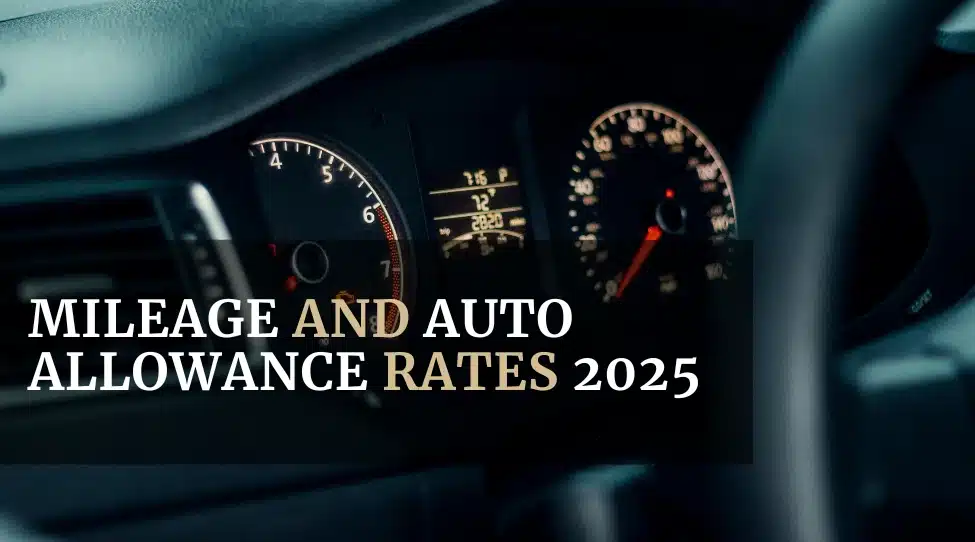
Inspired Travel Group is a full-service corporate travel agency servicing clients right the way across North America. Our people first approach to travel ensures only the highest levels of personalized, attentive service.
Mileage and auto allowance rates play an important role in business travel, ensuring employees are fairly compensated for using their vehicles for work-related activities. For businesses, these rates are essential for budgeting and compliance with tax regulations. Staying informed about the latest rates and guidelines can make a big difference in how smoothly your reimbursement process operates.
This guide dives into everything you need to know about mileage and auto allowance rates in 2025, providing practical insights for both employees and employers.
The standard mileage reimbursement rate set by the IRS for 2025 is $0.68 per mile, reflecting a slight increase from the previous year’s $0.67. This adjustment accounts for rising operational costs, such as fuel and maintenance.
In Canada, the CRA has updated its rate to $0.70 per kilometer for the first 5,000 kilometers, with a lower rate for distances beyond that. These rates vary slightly by province, making it essential for Canadian businesses to check the specific guidelines for their region.

Mileage reimbursement is calculated by multiplying the total miles driven for business purposes by the standard mileage rate. For example:
Employers should ensure employees submit accurate mileage logs, including the following details:
Using a mileage tracking app like MileIQ or Everlance can simplify this process and ensure accuracy.
For employees, mileage reimbursements are generally non-taxable as long as they don’t exceed the standard rate. If a company reimburses above the IRS or CRA rates, the excess is considered taxable income.
Employers must maintain clear records to avoid tax complications, while employees should keep copies of their mileage logs in case of an audit. Find out more about the tax implications of mileage reimbursements on the IRS website or the CRA website.
Accurate mileage reimbursement policies benefit both employers and employees:
Additionally, using clear and transparent policies can avoid disputes and streamline financial reporting.
Managing mileage claims can be time-consuming, but the right tools can save hours of administrative work. Here are some practical options:
Know what’s reimbursable: Business trips to meetings, site visits and client appointments typically qualify, but commuting from home to the office does not.

For companies operating across multiple states or provinces, understanding regional variations in rates is crucial. For instance, California offers additional rates for electric vehicles, while Alberta’s rates differ slightly from Canada’s federal guidelines.
Employers should tailor their policies to reflect these variations, ensuring consistency and fairness for employees in different locations.
Managing travel logistics and expenses can be overwhelming, especially for companies juggling multiple priorities. At Inspired Travel Group, we offer full-service corporate travel solutions, allowing clients to focus on the priorities of each trip. Our team works closely with businesses to streamline processes, reduce costs and ensure compliance.
Explore our services at Inspired Travel Group and discover how we can transform your corporate travel management experience.
Mileage and auto allowance rates in 2025 are essential tools for businesses to fairly compensate employees while staying compliant with tax regulations. Understanding these rates, managing reimbursements efficiently and adapting to regional variations can save costs and foster a positive work environment.
For businesses looking to streamline their travel operations, Inspired Travel Group offers tailored solutions that simplify travel logistics, helping you focus on what matters most. Contact us to learn more about how we can support your corporate travel needs and take the first step toward hassle-free travel management today.